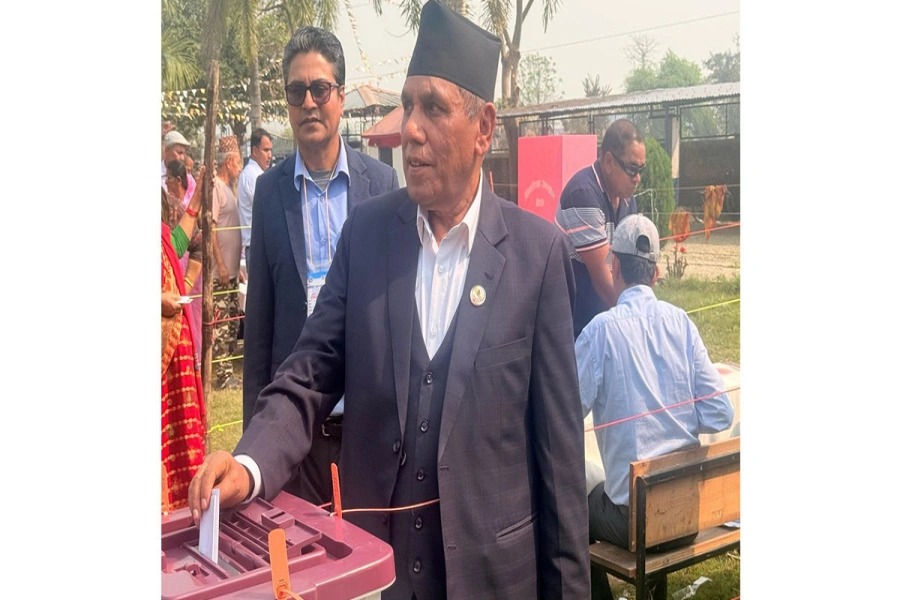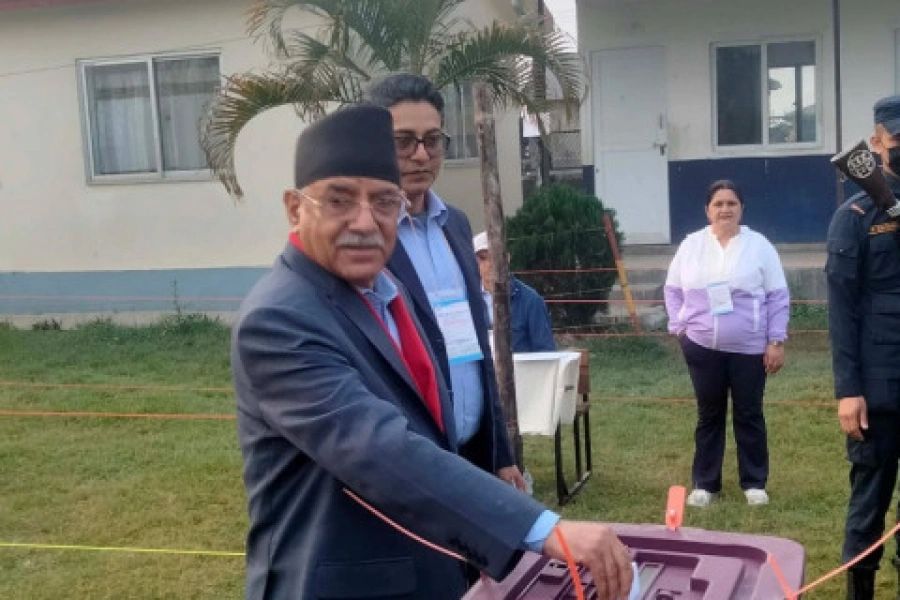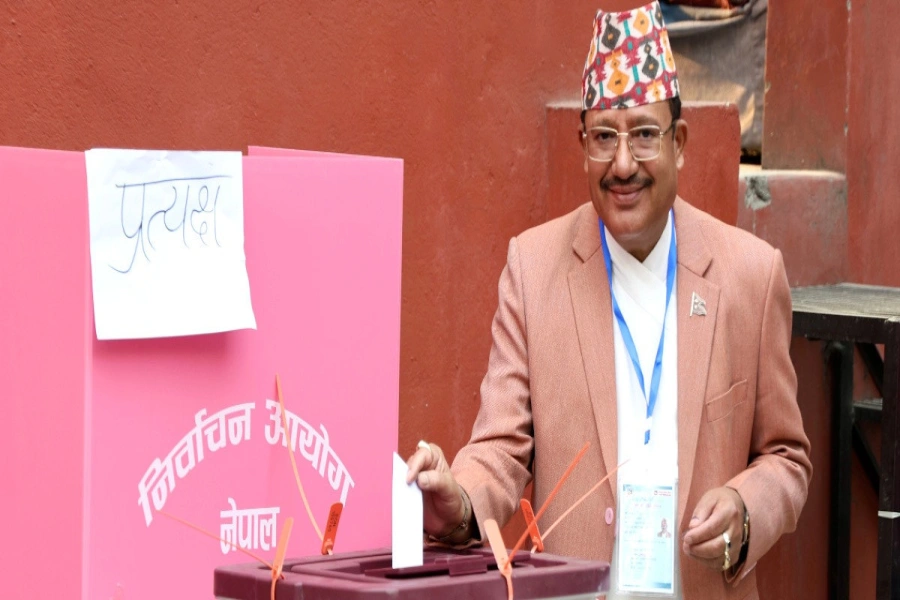KATHMANDU, April 16: A story of love and innocence being threatened by war, the play ‘Sakhi’ takes us back to the 10-year-long Maoist insurgency that bitterly shook the country. Written by playwright Ramesh Ranjan and directed by Ghimire Yubaraj respectively, the play is a depiction of psycho-social turmoil that the nation faced, witnessing the incidents of grief and hostility during the civil war. Many innocent families suffered as they were caught in the war between the Maoist fighters and the state army.
This play is a reflection of the conflict that claimed many lives and left people psychologically scarred for life. The play begins with a war-stricken aura engulfing the peace of the societies in the tarai plains of Nepal. Among many estranged families, Shobha’s (Priyanka Jha) family is the one being deliberately affected and hit hard by the scenario with her pet (a lamb) Sakhi, (Sabin Kattel) left as a hope of her survival. Her family has been dispersed by the war, and the families of the siblings Shambhu (Nilesh Jha) and Geeta (Sangita Jha) are seemingly threatened by the Maoist fighters. The attacks take toll on the family when the siblings’ father Sagun (Rambhajan Kamat) is unreasonably held captive by the state army. The situation gets worsened when the fighters invade Sagun’s house and force Shambhu to join the fighters’ group. And to stop this from happening, Shobha pays a heavy price to be left alone for the rest of her life.
Worth of stories

Originally written in Maithali, the play is dramatized in its original version. Although viewers may have a hard time understanding some of the scenes in Maithali dialects, the play has fairly kept the essence and has typicality portrayed the tarai society. The creative usage of stage is one of the unique elements that ‘Sakhi’ has played well with, along with the neat and uniformed execution of props. From a playful journey of innocence to the occurrence of harsh scenarios, the play vividly exemplifies the plight of the survivors left behind by Maoist insurgency.
“The play represents the hundreds and thousands of untold stories of people whose lives were shattered by the long insurgency. We have attempted to express the stories mired with grief with the hope to lend it a space and acknowledgement in the multicultural society that we live in,” said Ghimire Yubaraj.
“As the play has Maithili dialects, I had quite a challenging time learning to speak fluently in Maithili although I have grown up listening to it. However, it was all possible with the proper coordination and constant rehearsal,” said one of the actors, Sangita Urawn.
The play is being staged at Shilpee Theater, Battisputali, till April 21 except on Tuesdays.






































